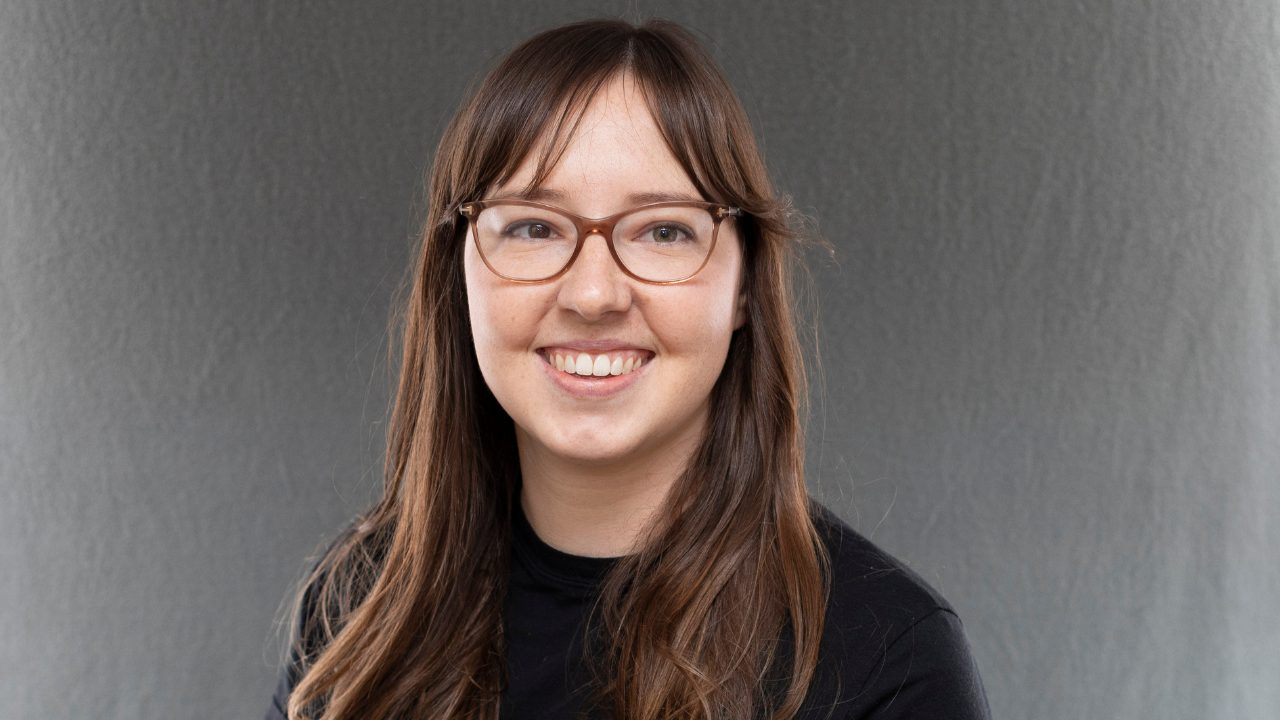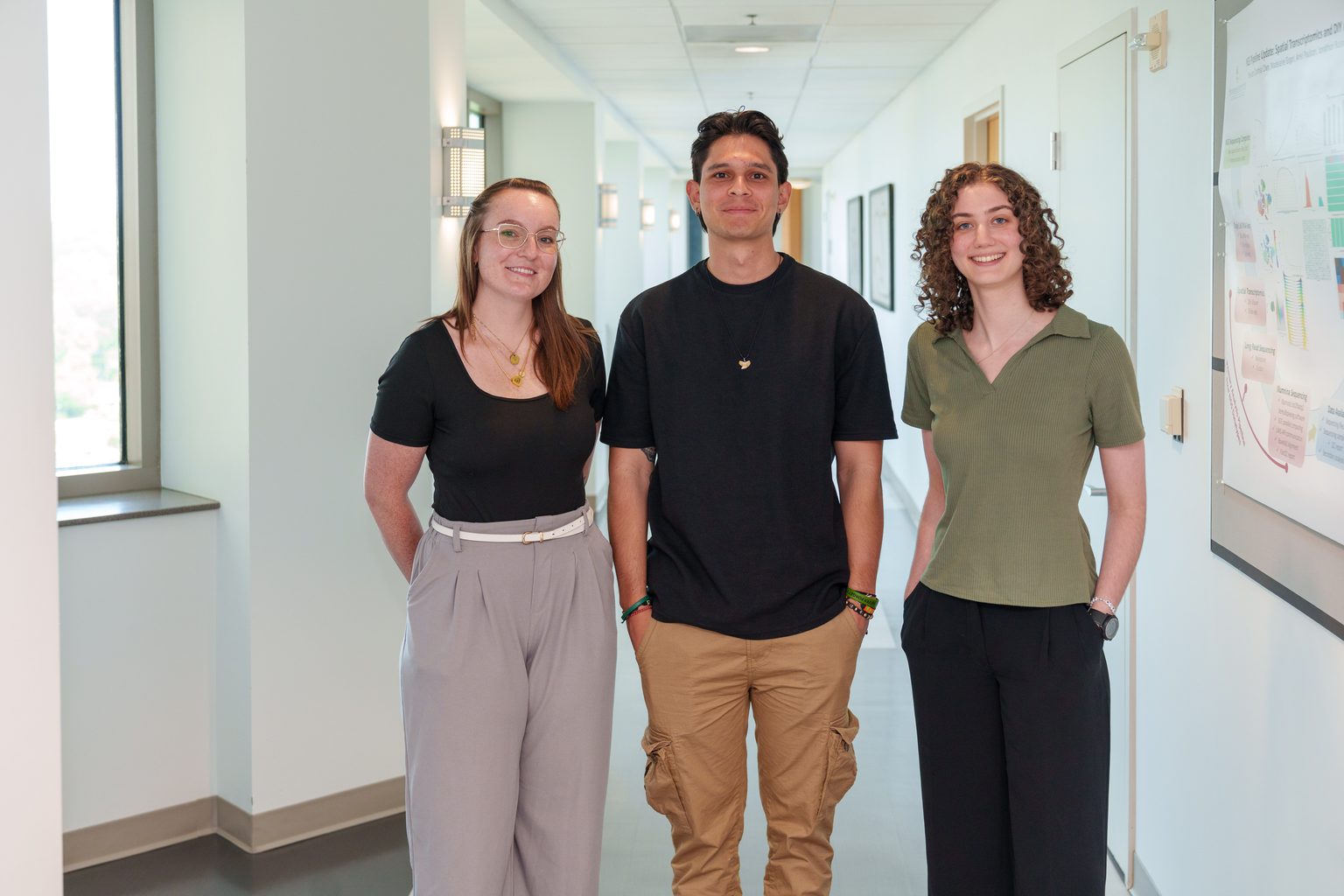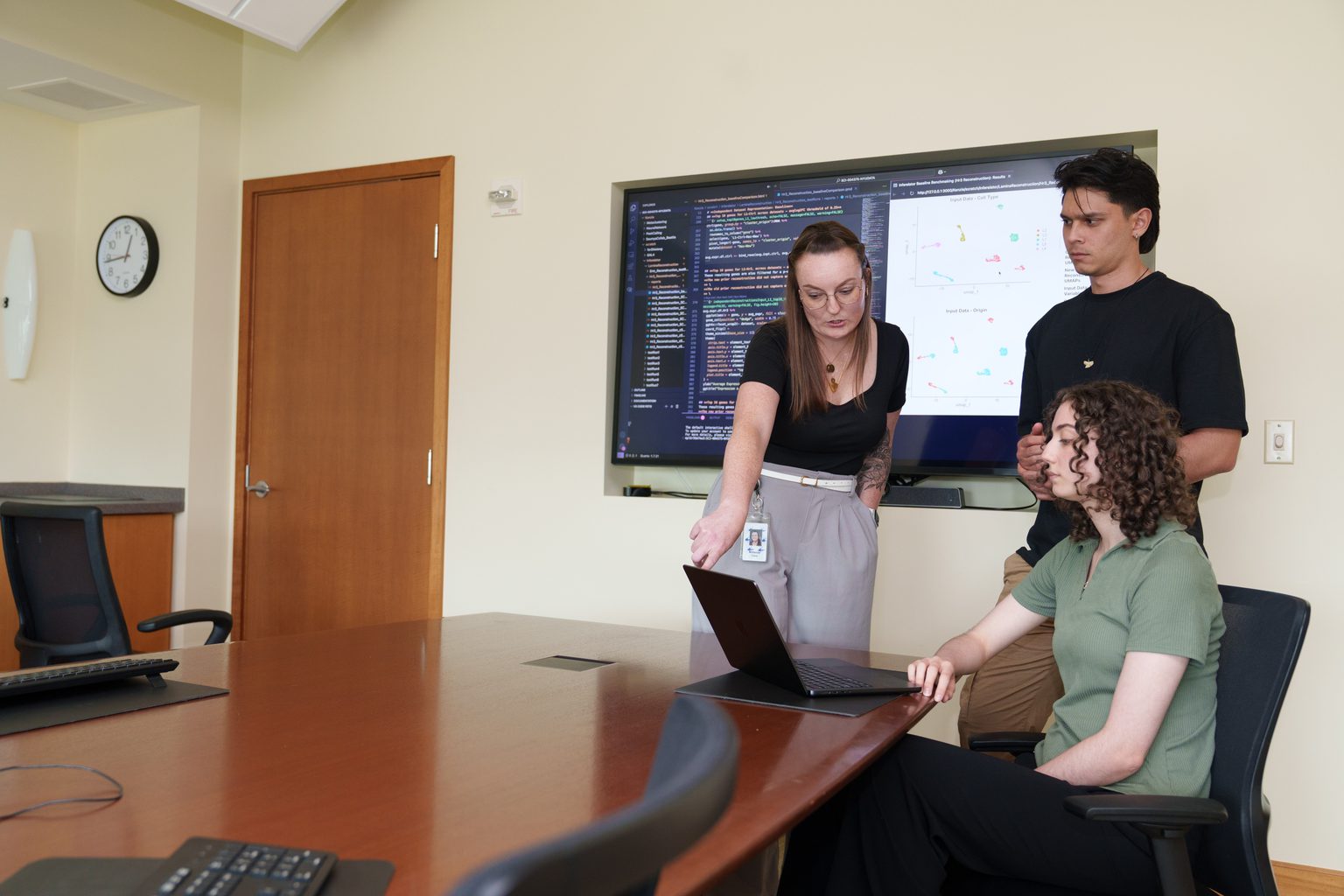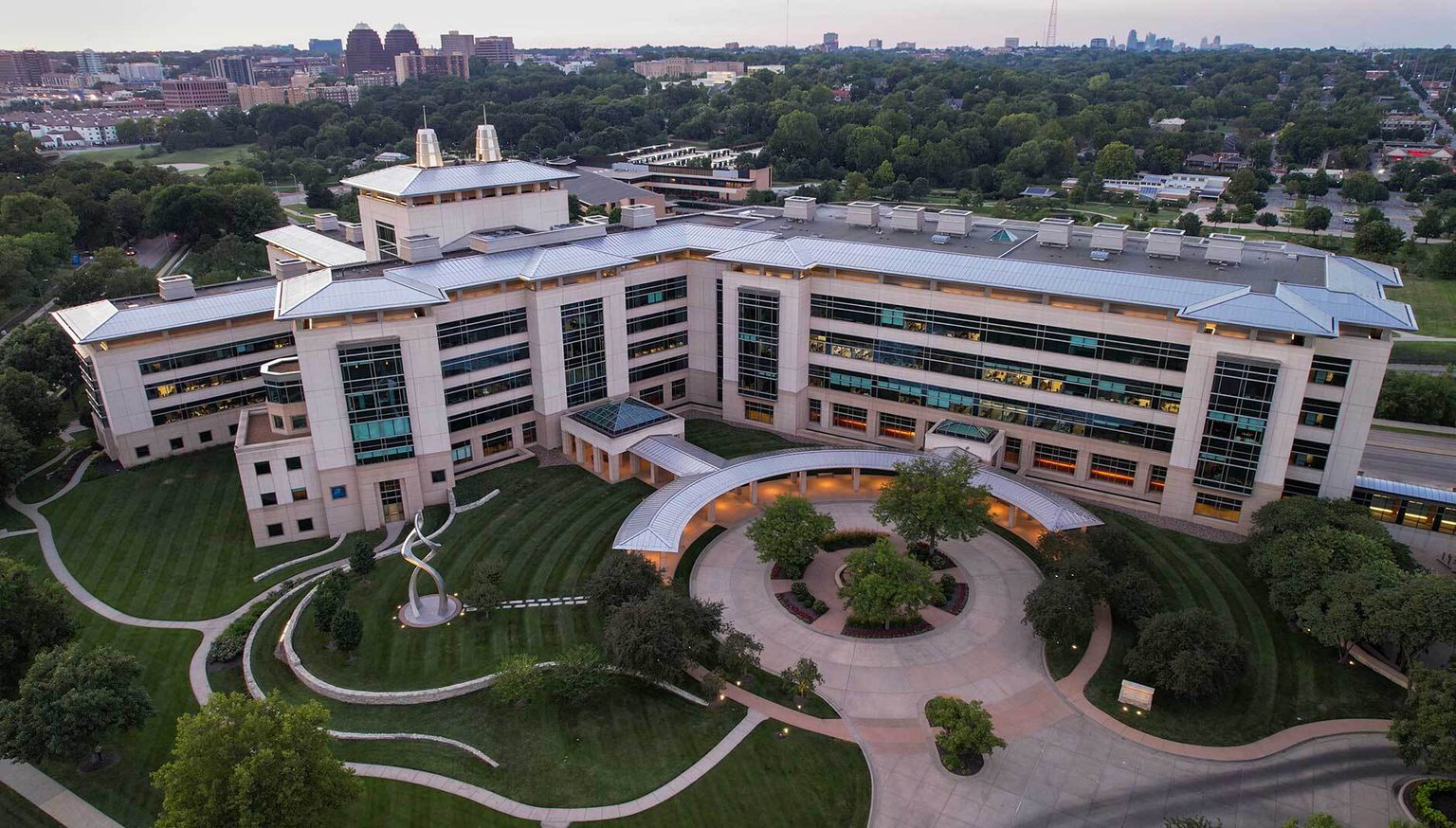News

07 January 2026
Student Spotlight: A Q&A with Kelsey Scott, a Ph.D. Student in the Piotrowski Lab
"The collaborative environment has been incredibly important for my research experience so far."
Read Article
The Graduate School of the Stowers Institute for Medical Research
News
Scholars perform cutting-edge, collaborative, and multidisciplinary computational science aimed at solving fundamental biological questions.

The Stowers Institute and the Graduate School welcomed the second cohort of Stowers Computational Biology Scholars on June 2, 2025. The one-year program is designed for early-career computational biologists to gain experience in solving fundamental biological questions through hands-on training and mentorship from Stowers Technology Center scientists, while also being embedded in the laboratory of a Stowers Investigator.
The three new Scholars are Jillian Belluck, Juan José Picón Cossio, and Kenzie Treese. Belluck recently received her undergraduate degree in computational biology from Brown University and will be working in the lab of Investigator Jennifer Gerton, Ph.D. Picón Cossio, a biologist and bioinformatician, is joining the lab of Assistant Investigator Siva Sankari, Ph.D., and Treese, a former Stowers Research Technician III, is working with Assistant Investigator Neşet Özel, Ph.D.

The fully funded program offers career enhancement and valuable experience applying computational tools toward biological problems. Scholars are provided with a unique opportunity to perform collaborative, cutting-edge, and multidisciplinary computational science in the Midwest. Additionally, scholars may be eligible for a full-time position at the Institute after completing the program.
Inaugural Scholar Alejandro Diaz de la Vega Gonzalez, now Bioinformatician I in the lab of Associate Investigator Ariel Bazzini, Ph.D., explained how the field is advancing our understanding of living systems. “The most exciting aspect of computational biology is the potential to uncover hidden patterns and relationships in biological data.”
As technology has rapidly advanced, the ability to collect vast amounts of data has also expanded. Making sense of this data requires computational approaches such as machine learning, resulting in a growing demand for experts in computational biology and bioinformatics.
Stowers Investigator Julia Zeitlinger, Ph.D., said, “Investing in training computational biologists is crucial.” Zeitlinger, who also leads the Stowers Office of Scientific Leadership AI Initiative, further explained, “Artificial intelligence allows us to analyze and detect patterns within highly complex data, enabling us to accelerate our understanding of fundamental principles for how life works.”
News

07 January 2026
"The collaborative environment has been incredibly important for my research experience so far."
Read Article
News

18 December 2025
Eleven key moments and achievements from the Stowers Graduate School in 2025
Read Article
News
24 November 2025
Students working with Pillai can look forward to studying deep evolutionary biology paired with advanced protein biochemistry and artificial intelligence to investigate and explore these questions.
Read Article
